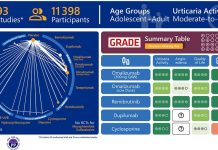
In a new study from The University of Hong Kong, researchers found an effective vaccine regimen in preventing SARS-CoV-2 nasal infection.
They found that a combination of intramuscular PD1-based receptor-binding domain (RBD) DNA vaccine (PD1-RBD-DNA) prime and intranasal live attenuated influenza-based vaccine (LAIV-HK68-RBD) boost vaccination regimen prevented live SARS-CoV-2 nasal infections.
The COVID-19 pandemic has resulted in over 275 million infections with nearly 5.36 million deaths by now, yet few vaccines approved for emergency use can induce sufficient mucosal protection for preventing nasal infection.
In this study, substantially higher systemic and mucosal antibodies IgA/IgG and lung resident polyfunctional memory CD8 T cells were induced mainly by the heterologous combination regimen as compared with current COVID-19 vaccination regimens.
The team found the prevention of robust SARS-CoV-2 infection in nasal turbinate was achieved primarily by the heterologous combination regimen besides consistent protection in lungs.
The new regimen-induced antibodies also cross-neutralized many pandemic variants of concern tested, including Alpha, Beta and Delta.
The findings provided the proof-of-concept that vaccine-induced robust mucosal immunity is necessary for preventing SARS-CoV-2 nasal infection, which has significant implications for ending the ongoing COVID-19 pandemic.
The researchers believe that using nasal spray vaccination to build up protection in the upper respiratory tract is the key strategy to reduce transmission of SARS-CoV-2 and important for the ultimate control of the COVID-19 pandemic.
If you care about COVID, please read studies about drug that could lower death risk caused by COVID-19, and who has the highest risk of heart damage in COVID-19.
For more information about health, please see recent studies about drug that could reduce obesity, fatty liver, improve heart function, and results showing that Omicron may be less likely to cause severe disease.
The study is published in EBioMedicine. One author of the study is Professor Yuen Kwok-yung.
Copyright © 2021 Knowridge Science Report. All rights reserved.



